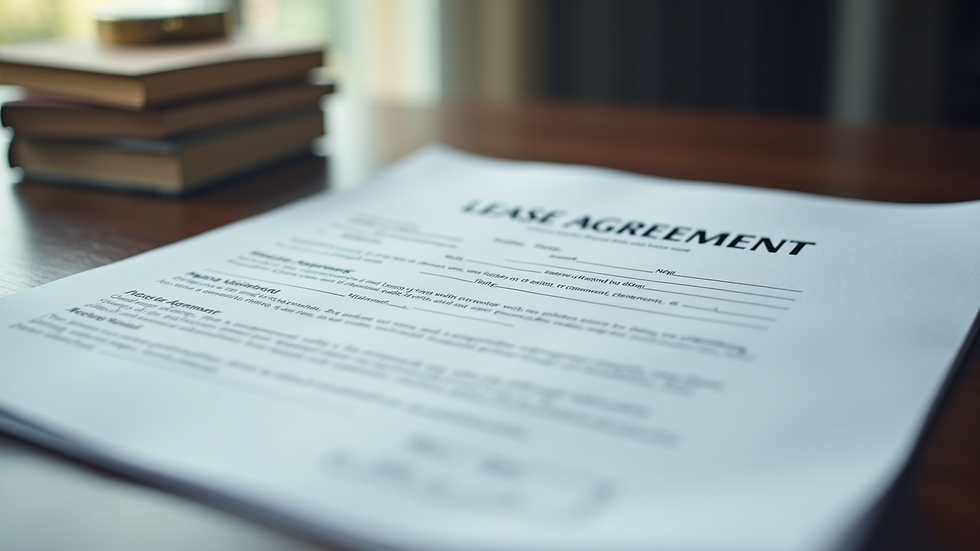Expert Tips for Landlord Education
- Christian Bryant

- Aug 13, 2025
- 4 min read
Managing residential rental properties in Oregon requires a solid understanding of landlord-tenant laws, effective communication skills, and best business practices. Whether you are a property manager, landlord, realtor, or real estate investor, staying informed and educated is essential to running a successful rental business. This article provides expert tips and insights on landlord education and highlights the importance of property management courses to help you navigate the complexities of property management with confidence.
Why Property Management Courses Are Essential for Landlords
Property management courses offer a structured way to learn the legal, financial, and operational aspects of managing rental properties. These courses are designed to equip landlords and property managers with the knowledge needed to comply with Oregon’s landlord-tenant laws and to handle tenant relations professionally.
Key benefits of property management courses include:
Understanding legal requirements: Learn about lease agreements, eviction procedures, security deposits, and fair housing laws specific to Oregon.
Improving tenant screening: Discover best practices for background checks, credit reports, and references to select reliable tenants.
Enhancing maintenance management: Gain skills in scheduling repairs, conducting inspections, and managing vendor relationships.
Financial management: Learn how to budget, set rent prices, and handle taxes and accounting for rental properties.
Taking property management courses can reduce costly mistakes and improve tenant satisfaction, leading to higher retention rates and better cash flow.

Understanding Oregon Landlord-Tenant Laws
Oregon has specific laws that govern the relationship between landlords and tenants. Familiarity with these laws is crucial to avoid legal disputes and ensure smooth property management.
Lease Agreements and Disclosures
Oregon law requires landlords to provide written lease agreements that clearly outline the terms of tenancy. This includes rent amount, payment due dates, security deposit details, and rules regarding pets or smoking. Additionally, landlords must disclose any known lead-based paint hazards and provide tenants with a copy of the Oregon Residential Landlord and Tenant Act.
Security Deposits
Landlords can charge a security deposit up to one and a half times the monthly rent. The deposit must be returned within 31 days after the tenant moves out, minus any deductions for damages beyond normal wear and tear. Keeping detailed records and photos of the property condition at move-in and move-out is essential.
Eviction Process
Evictions in Oregon require proper notice and legal procedures. For non-payment of rent, landlords must provide a 72-hour notice to pay or vacate. For other lease violations, a 30-day notice is typically required. Filing an eviction lawsuit without following these steps can result in delays and penalties.
Fair Housing Compliance
Landlords must comply with federal and state fair housing laws, which prohibit discrimination based on race, color, religion, sex, national origin, familial status, disability, sexual orientation, and other protected classes. Training on fair housing is often included in property management courses to help landlords avoid unintentional violations.

What is a landlord certification?
A landlord certification is a formal credential that demonstrates a landlord’s knowledge and competence in managing rental properties according to legal and ethical standards. In Oregon, obtaining a landlord certification can be a valuable asset for property managers and landlords who want to enhance their credibility and professionalism.
Benefits of Landlord Certification
Legal compliance: Certification programs cover state-specific laws and regulations, helping landlords avoid costly legal issues.
Improved tenant relations: Certified landlords are better equipped to communicate effectively and resolve conflicts.
Business growth: Certification can attract more tenants and investors by showcasing your commitment to responsible property management.
Access to resources: Many certification programs provide ongoing education, networking opportunities, and support.
How to Get Certified
Several organizations offer landlord certification programs, including the Rental Property Management Education (RPM Education) platform. These programs typically involve completing coursework, passing an exam, and sometimes fulfilling continuing education requirements.
For those interested in advancing their skills, exploring landlord education options and certification programs is a smart investment.

Best Business Practices for Managing Residential Rental Properties
Successful property management goes beyond legal compliance. Implementing best business practices can improve tenant satisfaction, reduce vacancies, and increase profitability.
Effective Communication
Be responsive: Answer tenant inquiries promptly via phone, email, or text.
Set clear expectations: Provide tenants with a welcome packet that includes contact information, maintenance procedures, and community rules.
Document everything: Keep written records of all communications, agreements, and maintenance requests.
Routine Maintenance and Inspections
Schedule regular property inspections to identify and address maintenance issues early.
Use professional vendors for repairs and keep receipts and invoices for your records.
Encourage tenants to report problems promptly to prevent damage escalation.
Tenant Screening and Retention
Use a consistent screening process that includes credit checks, criminal background checks, and rental history verification.
Offer lease renewal incentives such as minor upgrades or rent discounts for long-term tenants.
Address tenant concerns quickly to foster a positive rental experience.
Financial Management
Set competitive rent prices based on market research.
Use property management software to track rent payments, expenses, and generate financial reports.
Plan for unexpected expenses by maintaining a reserve fund.
Continuing Education and Staying Updated
The rental property landscape is constantly evolving with changes in laws, market conditions, and tenant expectations. Staying updated through continuing education is vital.
Attend workshops, webinars, and seminars focused on Oregon landlord-tenant laws.
Subscribe to newsletters from reputable property management organizations.
Join local landlord associations or real estate investment groups to network and share knowledge.
By committing to ongoing learning, landlords and property managers can adapt to changes and maintain a competitive edge.
Investing time and effort into property management courses and landlord education can transform how you manage your rental properties. With the right knowledge and skills, you can protect your investments, build strong tenant relationships, and run a profitable rental business in Oregon. Explore available resources and certification programs to take your property management expertise to the next level.



Comments